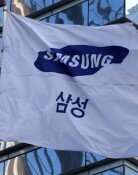Hyundai self-rescue plan takes shape
Hyundai self-rescue plan takes shape
Posted July. 27, 2000 12:19,
With the agreement by creditor banks to roll over Hyundai Engineering and Construction`s maturing debt of 700 billion won July 26, the instability in the financial market following the downgrading of HEC¡¯s credit rating might be level off.
The day`s stock market index closed slightly higher, as the bond market also showed signs of stability with creditors leaning toward allowing HEC to implement a self-rescue plan.
Yet a chorus of agreement by financial analysts worries that a crisis still looms over the nation and will once again rock Korea should HEC self-rescue measures take fail.
"The HEC crisis is still around the corner," one analyst said.
In addition, as the decision was self-imposed by creditor banks, the danger of dissolution of the agreement exists, as there is no legal basis to enforce it. Also regarded unpredictable are the secondary creditors, who hold maturing bonds issued by the HEC.
Debt rolled over:
The unilateral agreement by the creditor banks to delay the maturing date of their loans demonstrates their confidence that HEC`s self-rescue plan has a degree of potential.
Under the plan, HEC proposes to raise 1.5 trillion won through various sell-offs and to record an income of 248 billion won by the end of the year. Then, at the end of the year, HEC will be able to make good on the rolled-over debt of 1.852 trillion won.
"The committee of the heads of banks seemed somewhat satisfied with HEC`s self-rescue plan," a bank official at the meeting said.
Another factor that played a crucial role in their leniency was the remark made by Minister of Finance and Economy Lee Hun-Jai concerning the narrow-minded self interest among banks that was wreaking havoc in the financial market.
Financial market stabilizes:
HEC¡¯s finding solid ground and completely shaking off the liquidity crunch will depend on how firmly the creditor banks adhere to the agreement and the cooperation by the secondary debt holders, such as the short-term lenders and bond holders.
"The creditor banks have agreed to extend the maturity date for 276 billion won in corporate loans and 400 billion won in bond maturity," Korea Exchange Bank official Kang Kyung-Moon said. "However, the non-bank institutions hold about 100 billion won in bonds and the greater portion of the 498 billion won due to mature by the end of the year. The task remains to urge the non-bank institutions to agree to a policy of leniency."
A source in the investment groups of debt holders said, "Our customers, who are the actual stock holders, are not pleased with the banks` decision to roll over HEC`s corporate loans held by the banks."
Under the circumstances, the success of the agreement seems uncertain.
However, as the total corporate debt maturity burden is expected to be around 60 trillion to 70 trillion won by November, HEC will be able to stay afloat with the bank`s adherence to the rollover agreement.
"As the current agreement is self-imposed, should HEC self-rescue plan hit a snag, the banks could once again make a move to collect on the matured loans," a source in the banking industry observed.
HEC fate in own hands:
HEC announced July 26 that its self-rescue plan had led to securing 147 billion won so far and that the company would continue to secure repayment funds through the sale of its assets and other means.
For the 1.5 trillion won sought, the sales of a cement factory in Bangladesh (400 billion won), a construction investment trust (260 billion won), and an office building near Kwang-hwa-mun (70 billion won) are due to close around Aug. 10.
However, many in the investment groups have observed that the sale of a farm in Suh-san area (200 billion won) and the sale of the unsold and unleased commercial building space would take longer.
"The proposed rescue plan only submitted those measures that had high possibilities,¡± an HEC source said. ¡°We will be able to sell off other properties by the end of the year."







